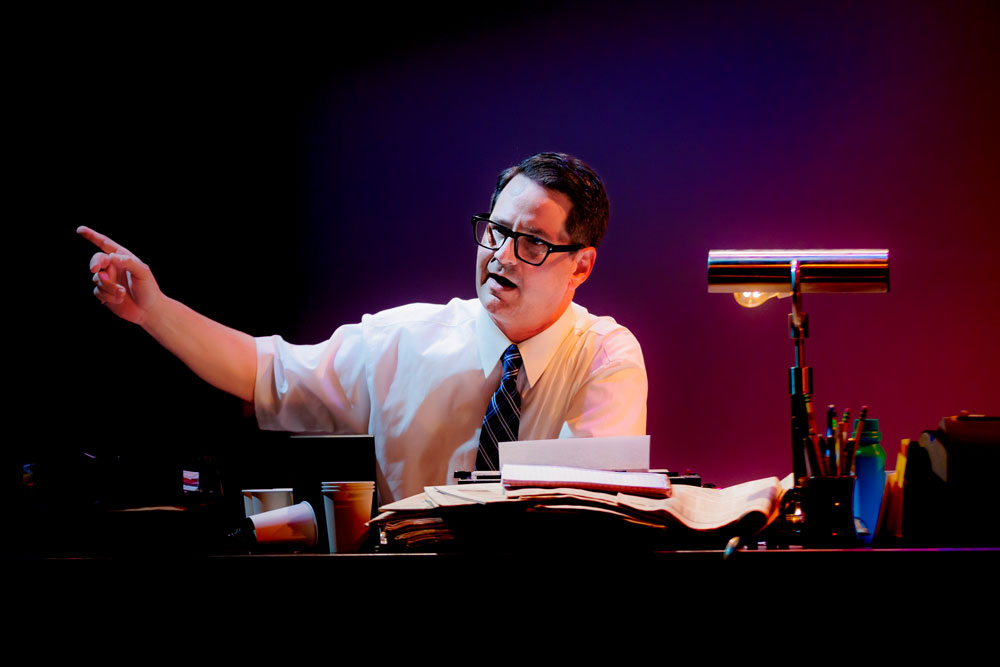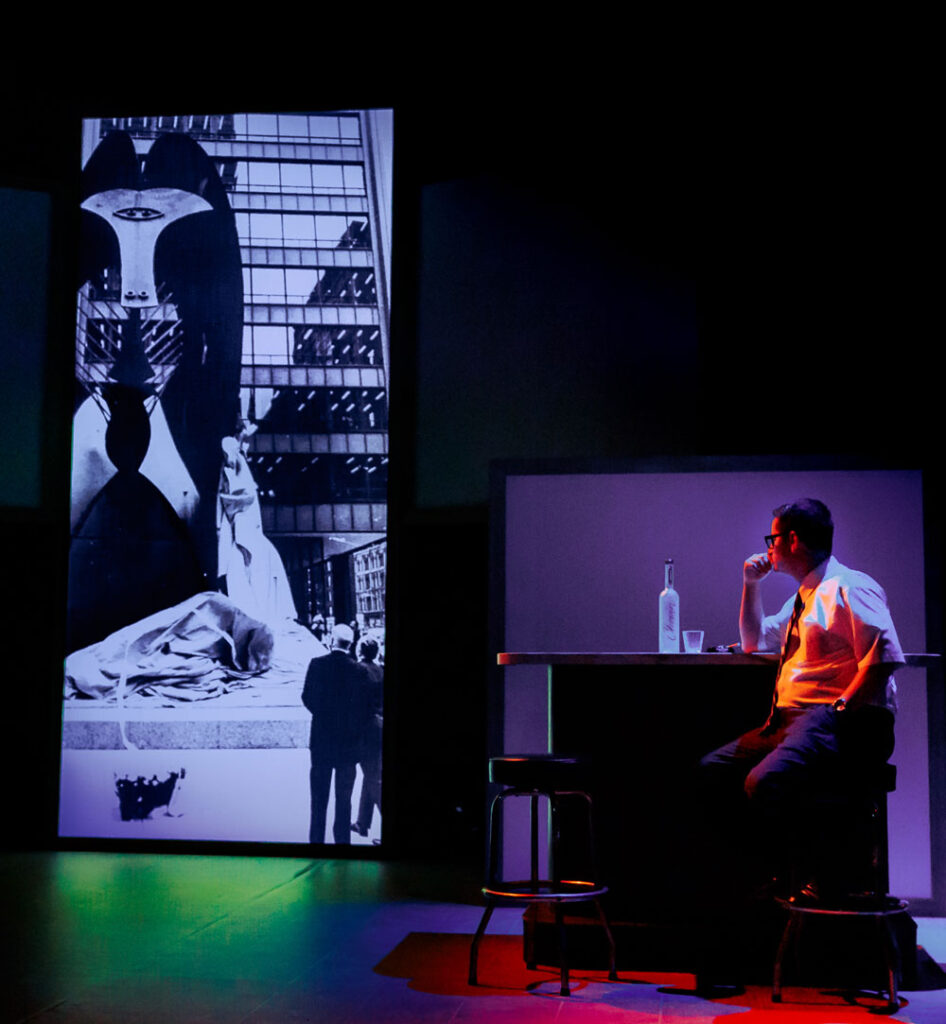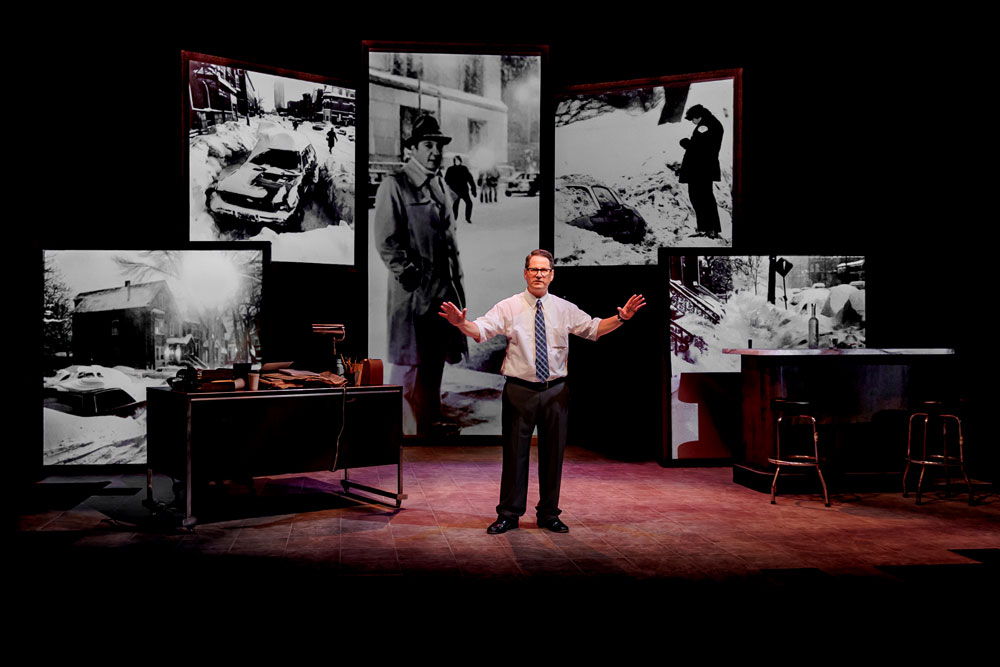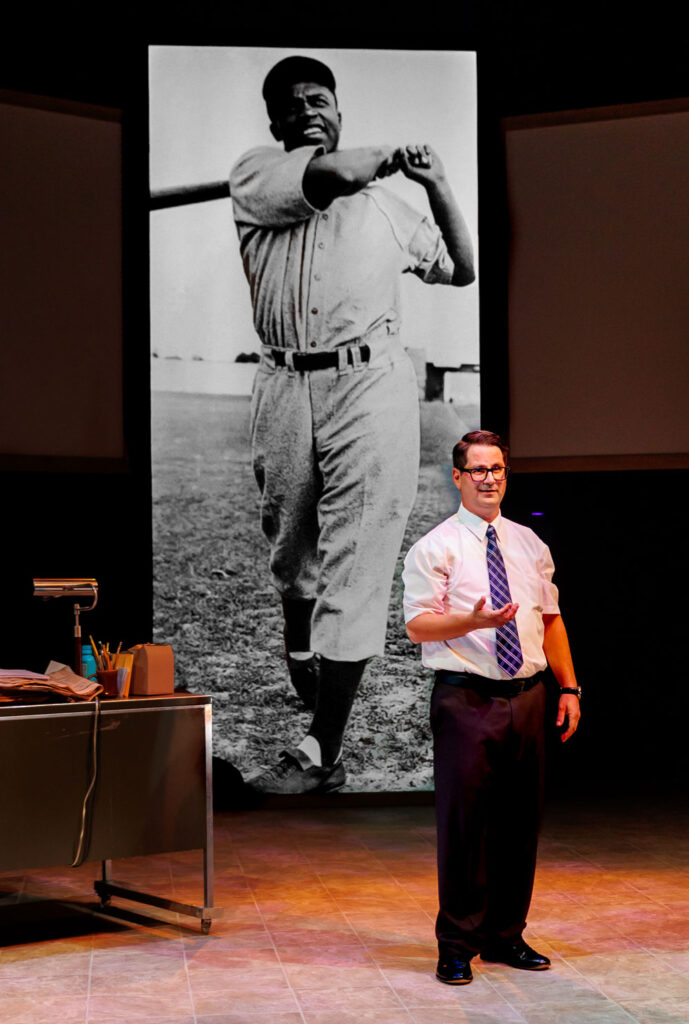
In the seven counties comprising northeastern Illinois, including Chicago’s Cook County, there were slightly more than a million and a half residents over the age of 50 between 2018 and 2022. That data comes from the Chicago Metropolitan Agency for Planning and offers pertinent insight. It acts as a useful measure of the number of people in the metro area who likely have a clear memory of storied newspaper columnist, Mike Royko, and how his name became synonymous with Chicago. Doubtless there are legions more across the country who also remember his name and influence from the 600 newspapers who syndicated his column.
After over three decades of journalistic success, much of it at the pinnacle of his craft, Royko passed away suddenly in 1997. His spectre still seems to linger benevolently over the city. Royko: The Toughest Man in CHICAGO, a new play in Wicker Park’s Chopin Theatre, reminds us why. In this one-man show, writer and performer Mitchell Bisschop slips smoothly into the Royko’s skin. As the production’s playwright, he also created a script that generously and brilliantly relies on Royko’s own words to give his performance heart and sustaining resonance.
You rarely hear it anymore, but there used to be a distinct Chicago accent, a brogue that cared nothing for polish but leaned heavily on a uniquely virile form of expressive emphasis. Growing up, Royko knew that accent well and the big shouldered often invisible people who used it. He was also baptized early into the Chicago way of doing things. Behavior that had ingrained within in it a determination to look for and find “what’s in it for me’”.

An enterprising Ukrainian immigrant, Royko’s father, Michael, owned and operated a bar on Milwaukee Avenue. The family lived right above it and Royko always spoke with pride when he described himself as a “flat above the tavern kid”. By the time he was 13, he was frequently it’s bartender. He watched as money passed under the table to unsee the seen. He noticed how political allegiance could translate into either food on the table or a reliable paycheck. He absorbed the belief that FDR might as well walk on water. Far earlier than most, he became an astute observer of how the wheels of the city turned.
Although Bisschop in this homage focuses more on Royko’s extraordinary professional years, offering these personal insights prove invaluable. They reveal the origins of a man’s beliefs and values. Declaring that his job is to “explain things, not report them”, one of the first statement’s Bisschop makes as Royko’s avatar addresses his purpose as a columnist. That comment sets the tone for how the production unspools and how Royko the man will be presented.

Since everyone has their own, writing opinion can place a target on one’s back. Royko’s opinions had few boundaries. They took on the powerful and the famous and they encompassed the controversial along with the commonplace. Frequently piercing, they garnered ferocious blowback as well as accolades that paved the way to enviable financial security. Bisschop’s portrayal of Royko lets us see all of it with vivid clarity. The performance may not count as completely dispassionate hindsight, but it’s the kind of retrospective that takes into account history’s ability to validate courage.
Through veteran director’s Steve Scott’s pristine structural progression and Smooch Medina’s near rapturous projection design, Chicago’s 50s, 60s, 70s, 80s and 90s spring back to life with the faces, voices and scenic dioramas that defined the city during those volatile decades. Following Royko from his first writing gig at an Air Force publication, The O’Hare News, to the Chicago Daily News, the Chicago Sun Times and finally to the Chicago Tribune, we get to hear and see what made him so extraordinary by getting a view of his life and career through his eyes. That vantage point let us see how the word “tough” found its way into the play’s title. Using his platform to call attention to the city’s infamous “code of corruption” placed him at perpetual loggerheads with Chicago’s formidable and at times ruthless mayor, Richard J. Daley. Their shared animus became legendary. His was one of the few moral voices that dragged the complicity of northern racism into the sunlight after the assassination of Martin Luther King. And it was his sense of equity that caused him to ask why Frank Sinatra warranted a Chicago police officer standing guard at his hotel room door when their services would be better employed preserving the well-being of at-risk citizens.

Mirroring strongly held beliefs and convictions, the musings and remarks Royko made in his columns were matters of ethics and integrity. Another Chicago oracle from the period, Studs Terkel, called him a demon because he was so driven to share his interpretation of the world he inhabited with the rest of us. Through personal tragedy and the precarious upheavals in journalism that caused him to periodically change his writing perch, he faithfully and determinedly wrote weekly, daily and sometimes twice daily columns. In the end, he generated so much ink through his commentary it could fill the pages of a tower of books; all saturated with singular insight, keen intelligence and pointed humor.
Royko: The Toughest Man in CHICAGO renews ones appreciation for the columnist’s grit, wit and integrity. Because in many large and small ways so little has changed in the quarter century since his death, the show goes one step further to make you crave a new incarnation of the kind of fortitude, courage and talent that made a Mike Royko. But like all giants, those shoes are never easily filled.
Royko: The Toughest Man in Chicago
Through September 29, 2024
Chopin Theatre
1543 W. Division Street
Chicago, IL 60642